Table of content
25 Personality Interview Questions to Reveal the Best Candidates
Discover 25 insightful personality interview questions to assess traits and values. Hire smarter and build stronger teams with better cultural fit.
Hiring someone with the right skills is just one part of the equation. What truly matters is whether they fit your team’s culture, work style, and shared values. That’s where personality interview questions prove their value.
These questions help you understand how a candidate thinks, communicates, and handles challenges in real work settings. They offer a clearer picture than a resume ever could. In this guide, you’ll find 25 powerful questions to support smarter hiring and stronger team dynamics.
Why Personality Questions Matter in Interviews
Getting a sense of how someone thinks and behaves can tell you a lot about how they’ll show up at work. That’s why employers don’t just look at technical skills, they want people who mesh well with the company culture and align with their values. This is where personality interview questions really make a difference.
They help hiring managers understand things like how a candidate handles stress, gives and receives feedback, and works with others. These are the traits that often shape success in the long run, not just qualifications on paper.

When hiring for positions that involve teamwork, leading others, or working with clients, it’s important to consider not just skills but also personality, especially leadership styles. Asking structured questions about how candidates interact with others can help you make smarter and more confident hiring decisions.
When to Include Personality Interview Questions in Your Hiring Process
Industry specialists suggest integrating personality interview questions after candidates have already taken a personality evaluation. Whether you utilize a DISC assessment or the MBTI framework during pre-screening, introducing personality interview questions post-assessment allows you to:
- Filter applicants more efficiently
- Gain structured topics for interview conversations
- Evaluate candidates with identical technical capabilities
Starting with job-related skills tests before the interview phase ensures smoother evaluations, deeper insights, and better hiring results overall.

25 Best Personality Interview Questions to Ask
To identify the right candidates beyond just resumes, asking the right personality interview questions can uncover how applicants think, behave, and collaborate.
If you're wondering what are personality questions to ask in an interview, these types of inquiries help you evaluate whether their personal traits align with your team and work culture.
1. Can you walk me through how you'd handle a task that once felt impossible to you?
This is one of the most insightful interview questions to reveal how a candidate reacts when facing overwhelming or uncertain challenges. It encourages applicants to reflect on past situations where their resilience and mindset were truly tested.
By asking this, you can uncover:
- How well the applicant identifies the core of a problem
- Their ability to plan structured solutions
- Critical -thinking and adaptability skills
- Willingness to collaborate or seek support when needed
- Their persistence in following through despite setbacks
- How they learn and grow from tough experiences
This question not only highlights problem-solving techniques but also offers clues about emotional intelligence and how a person handles stress in real-world situations.
2. Do you thrive more in collaborative teams or when working independently?
This question is essential when tailoring your hiring process to match your company’s structure. Some roles may demand team synergy, while others need self-starters who can deliver autonomously. Including this in your set of interview questions will help you determine working style compatibility.
With this question, you can assess:
- Whether the candidate is more productive in team-based or solo environments
- Their level of self-discipline and accountability
- How they manage communication with teammates
- Flexibility in shifting between collaborative and independent tasks
- Comfort level with feedback and coordination
- Potential cultural fit within your organization
Understanding where candidates perform best ensures a better match between the job role and their work preferences, ultimately contributing to long-term success and satisfaction.

3. What’s a cause or activity that genuinely excites you?
These areThis is a insightful personality interview questions, thatwhich helphelps you understand what energizes your candidates beyond their job duties.
By asking this question, you can:
- Discover personal values that align with your company’s mission
- Uncover enthusiasm that may translate into workplace engagement
- Identify unique traits or extracurricular interests that add team value
- See whether the candidate maintains a balanced life and diverse interests
4. Share an example of how you used creativity to solve a difficult issue.
When it comes to evaluating problem-solving styles, few personality questions are as revealing as this one.
This question allows you to:
- Assess how a candidate approaches challenges with fresh thinking
- Evaluate their ability to innovate under pressure
- Understand if they can offer practical, out-of-the-box solutions
- See real-life examples of past success in solving complex problems
5. How do others on your team typically describe your approachability?
Hiring someone who can communicate and collaborate smoothly starts with the right personality interview questions. This one offers direct insight into interpersonal dynamics.
By asking it, you’ll learn:
- Whether the candidate fosters trust and open communication
- If they support others or contribute to psychological safety
- How well they receive feedback and offer peer encouragement
- If their presence positively impacts team morale

6. Would your supervisor say you pay close attention to details? Why or why not?
Hiring someone with a strong eye for detail ensures higher quality output and reduces costly mistakes. This question helps evaluate whether the candidate holds themselves accountable for accuracy and consistency.
Asking this type of question will reveal:
- How candidates perceive their own work quality
- Whether they take ownership of past errors or improvements
- If they are proactive in preventing mistakes before they happen
- How their behavior aligns with precision-based roles
7. How do you typically respond under pressure or in high-stress environments?
Understanding how applicants react in tense or demanding situations is critical for roles that require composure and critical thinking. This question helps identify emotional regulation and decision-making styles.
This interview question provides insights into:
- The applicant’s coping mechanisms under stress
- Their ability to maintain focus and productivity
- Emotional resilience and adaptability
- Whether they can contribute to a stable team dynamic
8. Which three words best summarize your personality?
This open-ended question allows you to evaluate self-awareness and see if the candidate’s personal traits align with your organizational values. It encourages thoughtful reflection without prompting rehearsed answers.
Using interview questions like this will help you:
- Understand how the candidate sees their identity
- Determine compatibility with your company culture
- Spot unique soft skills or strengths they bring to the team
- Measure how authentic or rehearsed their self-description appears
9. What traits or habits help you consistently meet deadlines?
The personality interview question uncovers not only a candidate’s time management skills but also their internal motivators. It gives you a glimpse into the structure and discipline they apply to deliver results on time.
Asking this kind of this question allows you to:
- Learn whether they’re self-driven or team-reliant
- Identify their sense of responsibility and commitment
- Assess if they follow through without supervision
- Determine how their personal traits influence work consistency
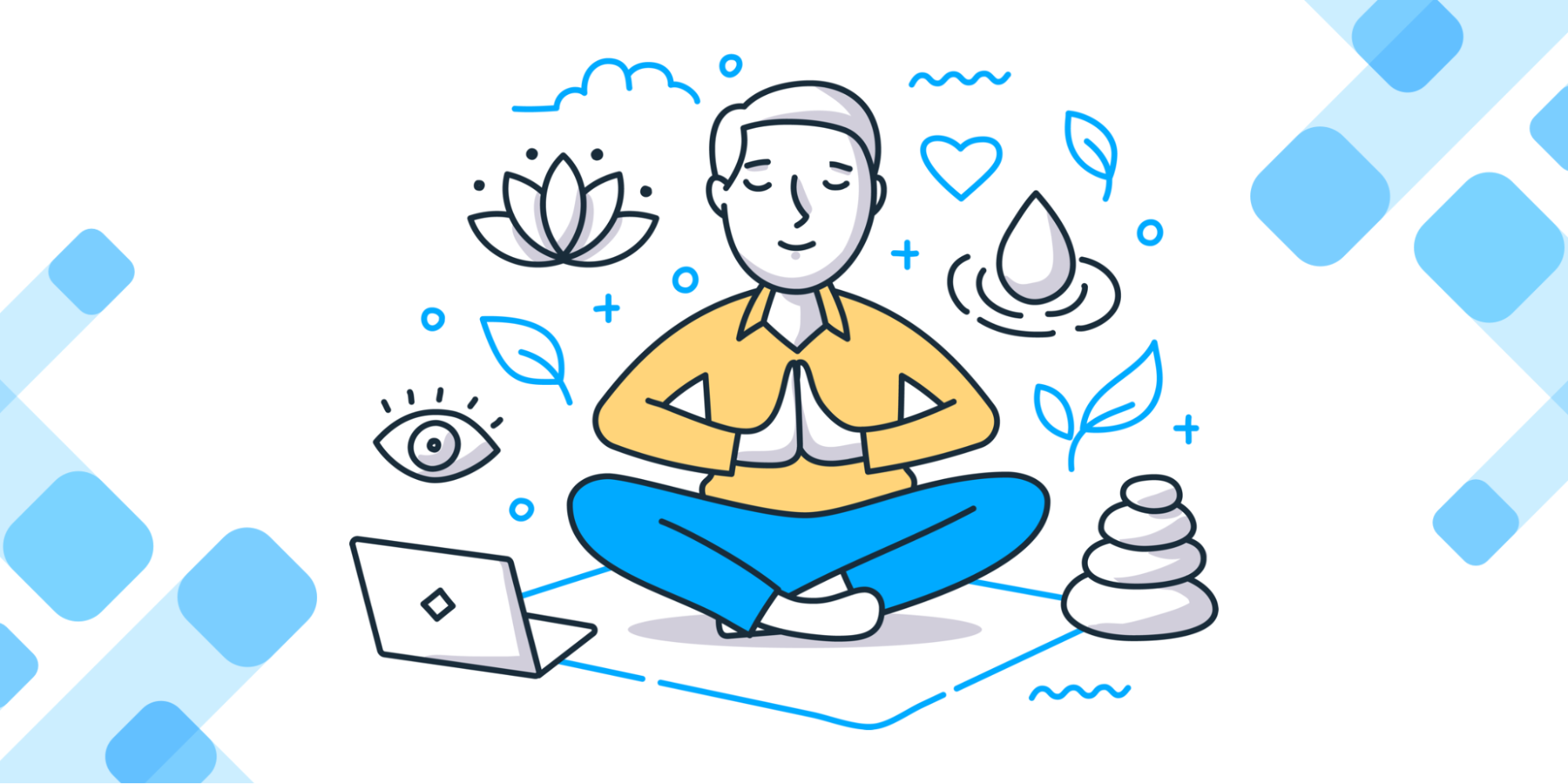
10. What motivates you to pursue your career goals?
Asking about motivation opens the door to a deeper conversation. You’re not just learning what they want, but why they want it. Their response can reveal whether they’re driven by intrinsic motivation (like personal growth or purpose) or external motivation (like money, status, or recognition).
By asking this question, you can find out:
- Whether the candidate is intrinsically or extrinsically motivated
- How they align personal goals with company objectives
- What factors influence their performance and persistence
- If their aspirations match the direction of your organization
Look for responses that demonstrate consistency, passion, and a willingness to improve over time.
11. Tell me about a time when you had to adjust quickly to a change at work.
Workplace environments often shift unexpectedly. This question helps assess a candidate’s adaptability—an essential trait in fast-paced or evolving industries. Among the most useful interview questions, this one highlights how candidates handle uncertainty.
This question allows you to discover:
- How they respond to change or disruptions
- Whether they maintain productivity under pressure
- Their ability to remain calm and flexible
- How effectively they communicate during transitions
Candidates who explain specific strategies or behaviors, such as seeking feedback, staying organized, or collaborating with others, often show high adaptability.
12. What’s a hobby you enjoy outside of work, and what draws you to it?
Hobbies can reveal aspects of a candidate’s personality not visible in a resume. This is one of the personality interview questions that offers insight into emotional intelligence, time management, and even creativity.
From this question, you can learn:
- What energizes or inspires the candidate beyond work
- Whether their hobbies demonstrate commitment or curiosity
- If they engage in team-based or independent activities
- How their interests may contribute to your company culture
Look for answers that show enthusiasm, consistency, or personal development linked to their outside interests.
13. When learning new things, which approaches work best for you?
This question helps evaluate a candidate’s learning style, which is crucial for effective onboarding and development planning. It’s an interview questionquestions that connects soft skills with practical performance.
It helps you assess:
- Whether the candidate is proactive or prefers structured guidance
- Their openness to feedback and self-improvement
- How well they align with your team’s training approach
- If they’re likely to keep up with industry changes or tech tools
Candidates may mention self-study, peer mentoring, formal training, or hands-on experience, all useful indicators of how they'll thrive in your work environment.
14. Describe a situation where you had a conflict with a coworker and how you resolved it.
Conflicts in the workplace are common, especially in collaborative environments. Asking this personality interview question helps you learn how candidates handle tension and maintain professional relationships.
By asking this, you can uncover:
- Their approach to conflict resolution (e.g., mediation, compromise)
- Their communication and negotiation abilities
- Emotional intelligence and patience in high-pressure situations
- Whether they can maintain team harmony under stress
This type of interview question gives valuable insight into the applicant’s interpersonal and conflict management skills, which are crucial for team-based roles.

15. Have you ever stepped in for a colleague? What strengths helped you manage that?
Stepping in for a colleague tests adaptability and resourcefulness. This question helps you assess whether the candidate can stay composed and efficient when facing unfamiliar duties.
It helps reveal:
- Flexibility in unexpected situations
- Key strengths such as problem-solving, time management, or initiative
- Willingness to learn and contribute beyond assigned tasks
- Ability to maintain productivity under changing conditions
Such personality interview questions are useful for identifying candidates who thrive in dynamic environments.
16. Have you experienced career stagnation? How did you respond to it?
The interview question explores how candidates handle slow periods in their career progression. It sheds light on their motivation and willingness to seek growth opportunities.
It can help you evaluate:
- Whether they pursue development through feedback or upskilling
- Attitude toward long-term goals and self-improvement
- Ability to stay focused without external rewards
- How they communicate with leadership when seeking advancement
17. What’s your reaction when a manager gives you constructive criticism?
This question highlights how candidates process and respond to negative feedback. A positive response often indicates maturity and a growth mindset.
By asking this, you’ll learn:
- Whether they apply feedback to improve performance
- Emotional regulation and openness to change
- Examples of professional growth driven by criticism
- Willingness to be coached and supported in their role
18. Can you recall a time you were disappointed at work? What did you do next?
Asking this type of question helps you evaluate how candidates respond emotionally and behaviorally when outcomes don’t go as planned.
This personality interview question gives you insight into:
- How they reflect on negative experiences
- Whether they take responsibility or shift blame
- Their ability to grow and improve from setbacks
- Emotional resilience and maturity under pressure
19. Are there any behaviors in the workplace that tend to irritate you?
Understanding a candidate’s workplace triggers can help assess how well they fit into your team dynamics. This is one of the most insightful personality questions to reveal:
- What specific actions they find unprofessional
- Whether they can communicate frustrations constructively
- Their tolerance level for different work habits
- How they maintain focus and productivity in less-than-ideal situations

20. What would you say is your strongest interpersonal or “soft” skill?
The question in the interview reveals the unique value a candidate brings in terms of people-related strengths. It also reflects their self-awareness and confidence. As one of the essential questions, it can uncover:
- Core strengths like collaboration, empathy, or conflict resolution
- The level of alignment between their soft skills and your role’s demands
- Their potential to contribute to team cohesion and workplace culture
21. Which skill relevant to this job would you like to develop further?
Identifying growth areas helps you understand a candidate’s mindset and commitment to professional development. This question is particularly helpful to:
- Evaluate whether they’re eager to improve and stay relevant
- Discover if their goals align with your training opportunities
- See how well they understand the industry or role they’re applying for
- Spot ambition without overpromising expertise
22. If we asked your team about your enthusiasm and work ethic, what would they say?
This is one of the most insightful personality interview questions to gauge a candidate’s commitment and drive within a team setting. Asking this question helps the interviewer understand how the applicant’s motivation and reliability are perceived by those they work with daily.
This question can help uncover:
- How the candidate maintains consistent performance over time
- Whether they go above and beyond during high-pressure situations
- How they demonstrate initiative and maintain energy across different tasks
- The authenticity of their interest in the job or industry
- How their peers interpret their contribution to team morale and productivity
By incorporating this question in the interview, you get a clearer picture of the candidate’s internal motivation and how it translates into action in real-world scenarios.
23. What type of work environment do you feel most productive in?
Understanding a candidate’s preferred work environment is crucial to determine whether they will thrive in your company’s setting. Personality interview questions like this one are essential to assess how a candidate’s behavioral tendencies align with your team dynamics.
This question helps you uncover:
- Whether the candidate works better in structured or flexible environments
- If they prefer autonomy or thrive in collaborative teams
- How their productivity is influenced by external factors such as office setup or management style
Tailoring your workplace to support a new hire's strengths can improve engagement and performance from day one.
24. Do you see yourself as someone who solves problems effectively? Can you give an example?
Hiring someone with strong analytical thinking and decision-making abilities is critical in many roles. By asking this, you gain insight into how candidates approach complex challenges, which is especially valuable for problem-solving-focused positions.
This interview question reveals:
- How candidates assess situations logically and calmly
- Whether they rely on instinct, collaboration, or structured methods to resolve issues
- Real-life examples of their problem-solving process in action
- Their critical thinking and stress management skills in action
Candidates who give a clear, thoughtful response are often well-equipped for roles that demand analytical thinking and decision-making skills.

25. What personal values guide your work, and how do they fit with our company culture?
Identifying whether a candidate’s values are in harmony with your organizational culture is a key element of long-term hiring success. It helps ensure a cultural fit that goes beyond technical skills or experience. This question can uncover:
- The candidate’s level of self-awareness and emotional intelligence
- Whether they have taken the time to research your company’s mission and values
- How well their personal ethics and work style match your team’s expectations
A strong alignment between company culture and personal values leads to better collaboration, higher retention, and increased job satisfaction.
Pro tips: How to Ask Thoughtful Personality Questions
When asking personality interview questions, aim to make candidates feel at ease. A relaxed setting helps them open up and respond truthfully. Use open-ended questions that explore how they handle real-life situations. This gives you a clear view of how they might behave in your workplace.
Instead of asking broad or generic questions, focus on prompts that match your company’s values and the role’s key challenges. Ask each candidate the same set of personality interview questions to ensure fairness and consistency.
Keep the tone friendly and neutral. Don’t push candidates toward “perfect” answers. Instead, encourage honest reflection. Questions like “What motivates you to do your best work?” or “Tell me about a time you faced conflict at work” reveal traits like adaptability and emotional intelligence.
Always remember: The personality questions should help you understand how someone works, not judge who they are. Thoughtful questions lead to better hires and stronger teams.

Combining Personality Tests and Interview Questions
Using personality interview questions alongside personality tests gives you a fuller picture of each candidate. While tests offer objective insights into traits like communication style, decision-making, and emotional response, interviews allow you to explore these traits in real-life contexts.
Start by reviewing the results of a personality test before the interview. Use the findings to tailor your questions. For example, if a candidate scores high in conscientiousness, you might ask how they manage deadlines under pressure. This approach helps validate the test results and adds depth to your evaluation.
Combining both tools improves hiring accuracy. It reduces bias, reveals how candidates behave under different conditions, and helps you find the right fit for your company culture. When used together, personality questions and assessments create a balanced and effective hiring process.
Read more about DISC personality types and how they impact workplace behavior!
Conclusion
Hiring the right person is more than matching skills to a job description. It’s about finding someone who will grow with your team and align with your company’s values. By using carefully chosen personality interview questions, you gain deeper insight into how candidates think and work. This simple step can lead to better hiring decisions, stronger teams, and a healthier workplace culture. In the end, the right questions don’t just fill a role, they help shape the future of your organization.
FAQs
1. What is your personality interview answer supposed to show?
When preparing your personality answer, focus on demonstrating self-awareness, emotional intelligence, and alignment with the company’s values. Your answer should highlight how you approach work situations, interact with others, and handle challenges.
For example, if you're asked how you deal with conflict, don't just say you avoid it—explain how you listen actively, stay calm, and work toward resolution. A strong personality interview answer connects your natural traits with the needs of the role. It should also reflect personal growth, showing how you’ve learned from past experiences and applied those lessons in the workplace.
2. What are the 5 personality traits interviewers often focus on?
In many personality questions, hiring managers assess traits based on the “Big Five” model of personality. These include:
- Openness – curiosity, creativity, and willingness to try new things
- Conscientiousness – organization, dependability, and goal-orientation
- Extraversion – sociability, energy, and assertiveness
- Agreeableness – cooperation, empathy, and kindness
- Neuroticism – emotional stability and stress response
When answering questions, candidates should show how these traits influence their behavior at work. Understanding the 5 personality traits interview focus helps you respond with examples that reflect both your strengths and potential fit for the company.
3. How can I evaluate answers to personality interview questions?
When evaluating answers to personality questions in the interview, look for clarity, self-awareness, and alignment with the role. Strong responses are honest, specific, and backed by real examples. Candidates should demonstrate how they handle challenges, work with others, and stay motivated. Avoid judging based on charisma or personal similarity—instead, focus on whether their traits support success in your company culture.
Use a consistent scoring system or rubric to stay objective. Ideally, combine these evaluations with other tools like skill tests or reference checks to get a well-rounded view of each applicant.


Don't Let Your Potential Stay Hidden!
Take the DISC test today and discover your unique 'YOU', with deep insights into your true personality and potential.
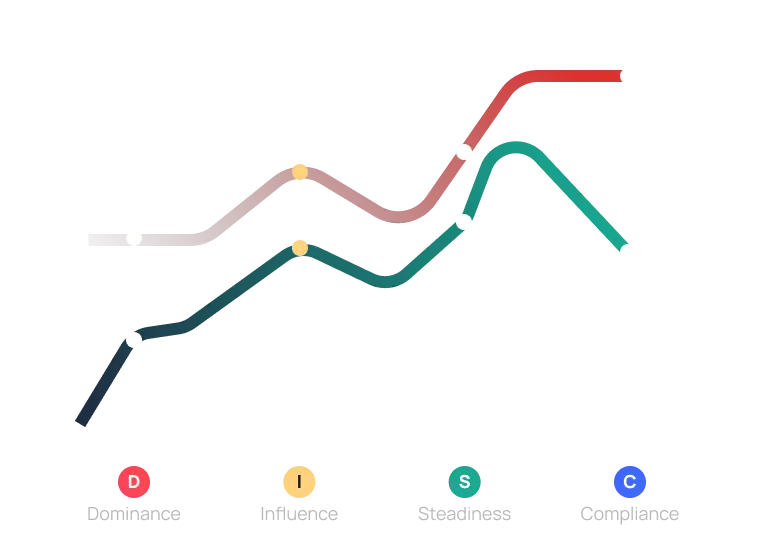
Represents your instinctive behaviors and desires.
Shows the behavioral tendencies you think you should exhibit in specific situations.
Related articles
You may also be interested in
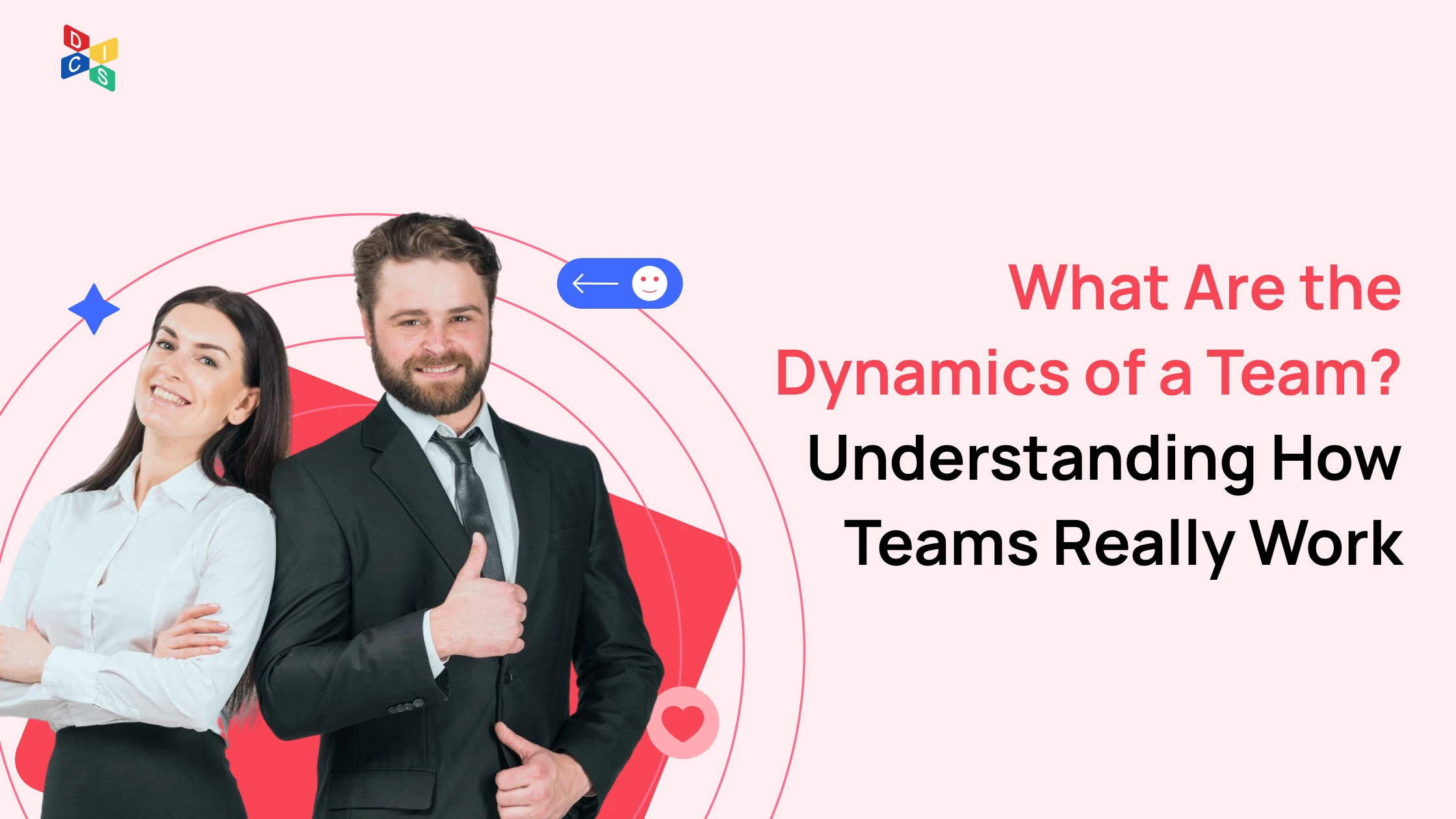 Self ExplorationDec 17, 2025
Self ExplorationDec 17, 2025What Are the Dynamics of a Team? Understanding How Teams Really Work
Discover what are the dynamics of a team and how they impact team performance. Learn how communication, roles & personality differences boost collaboration.
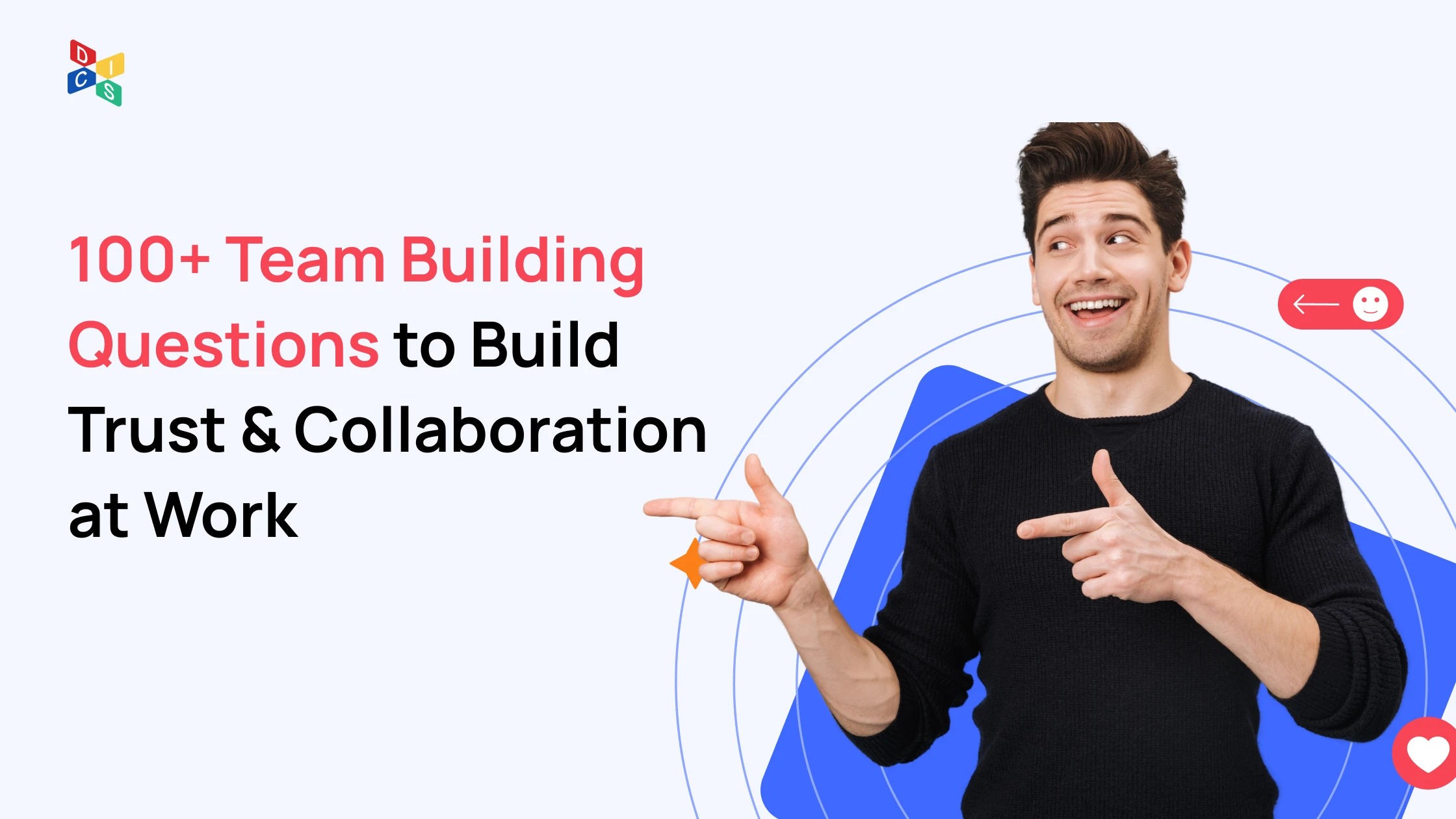 Self ExplorationDec 16, 2025
Self ExplorationDec 16, 2025100+ Team Building Questions to Build Trust & Collaboration at Work
Explore effective team building questions to boost connection, trust, and collaboration in your team. Engage everyone and strengthen your team's dynamics today!
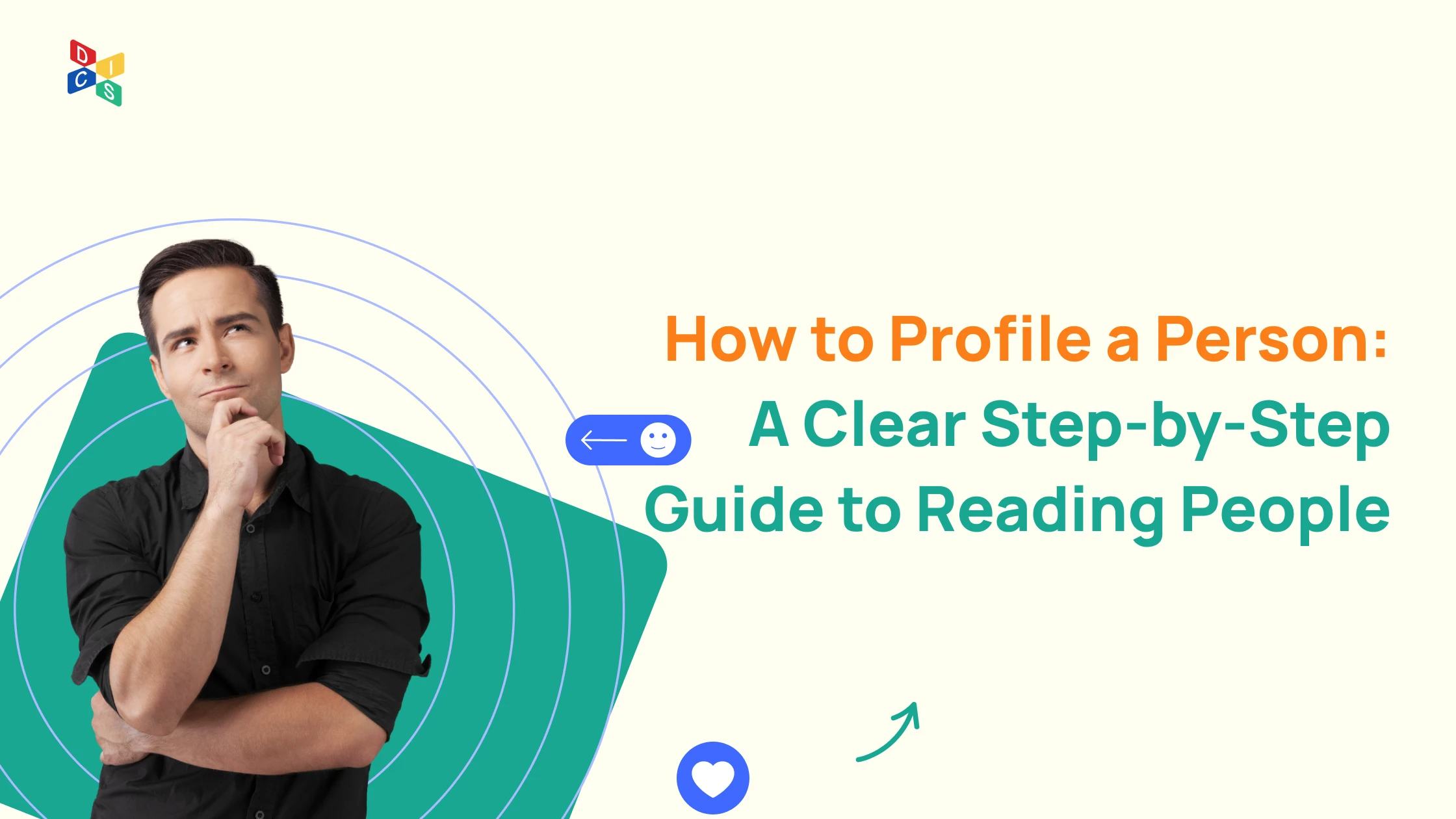 Self ExplorationDec 10, 2025
Self ExplorationDec 10, 2025How to Profile a Person: A Clear Step-by-Step Guide to Reading People
Learn how to profile a person step-by-step. Master practical techniques to read behavior, understand motives, and identify personality patterns accurately.
